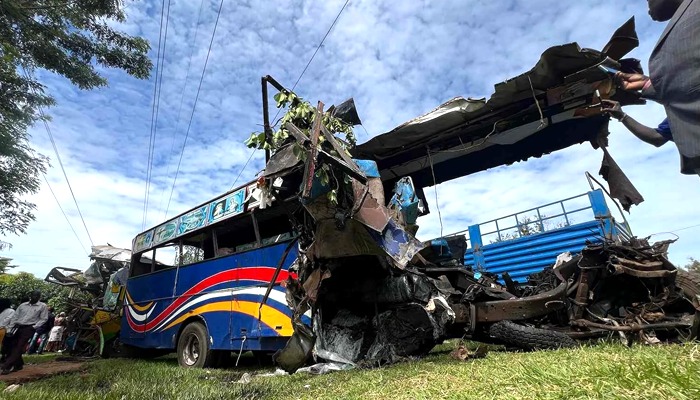- A fire and a massive explosion killed at least 49 people and injured hundreds more.
- Hospitals in the area are overburdened, with long lines of people waiting for treatment.
- The depot held millions of dollars worth of clothing that were ready to be sent to Western stores.
At a storage warehouse outside Chittagong, Bangladesh, a fire and a massive explosion killed at least 49 people and injured hundreds more.
When a number of cargo containers burst at the site in Sitakunda, hundreds of people had arrived to put out the fire.
Chemicals may have been stored in some of the containers.
In Bangladesh, industrial fires are widespread, and they are frequently blamed on lax safety laws.
Read more: Fire engulfs a Bangladesh container yard, killing 37 people and injuring hundreds more
Many of those injured are thought to be in serious condition, and the death toll is expected to grow.
Hospitals in the area are overburdened, with long lines of people waiting for treatment in the hallways. Blood donations are being sought, and some of the injured have been evacuated to Dhaka, the capital.
On Saturday, about 21:00 local time (15:00 GMT), a fire broke out, and hundreds of firefighters, police officers, and volunteers rushed to the site.
A massive explosion rocked the scene as they attempted to put out the fire, engulfing several of the rescuers in flames and hurling debris and people into the air.
“I was thrown about 10 meters from where I was standing by the explosion. My hands and legs have been scorched “Tofael Ahmed, a lorry driver, told the AFP news agency.
Read more: Five killed, scores injured in depot blast in Bangladesh
On Sunday morning, volunteers proceeded to retrieve victims from the smoldering ruins, some wearing only sandals on their feet.
Images from the aftermath showed twisted metal shipping containers and a warehouse’s ceiling that had collapsed. There was a terrible odor in the air, according to a local journalist.
At least five firefighters were killed and several others were injured in the blast. Many persons, including journalists who were covering the fire before the explosion, are still missing.
The explosion was so powerful that it could be heard from many kilometers away and destroyed windows in surrounding buildings.
A piece of debris had flown half a kilometer and landed in a local shopkeeper’s pond, according to reporters. After the explosion, he recounted witnessing “fireballs dropping like rain.”
According to BBC’s Akbar Hossain in Dhaka, many people in Bangladesh are comparing the explosion to the massive blast that devastated Beirut in 2020. People have reported hearing the explosion from a distance of 30-40 kilometers (19-25 miles), according to him.
According to fire officials, firefighters were still fighting to put out the fire on Sunday, with continued explosions making it more difficult.
Sandbags have been put by the army to prevent toxins from pouring into the Indian Ocean.
Read more: Bus slams into tree in Bangladesh
Around 4,000 containers were stored at the Sitakunda depot, which is located 40 kilometers (25 miles) south of Chittagong, Bangladesh’s primary seaport and second-largest metropolis. Sitakunda serves as a point of transit for products passing through the port.
According to a regional government official, the depot held millions of dollars worth of clothing that were ready to be sent to Western stores.
Bangladesh is a key clothing supplier to the West, and it has grown to become the world’s second largest exporter of garments in the last decade.
However, safety laws are frequently disregarded or inadequately implemented, and several significant fires and other disasters at companies have occurred in recent years.
The Dhaka Tribune newspaper produced a list of 12 industrial disasters that have killed over 1,000 people since 2005, including fires, building collapses, and chemical leaks.





















